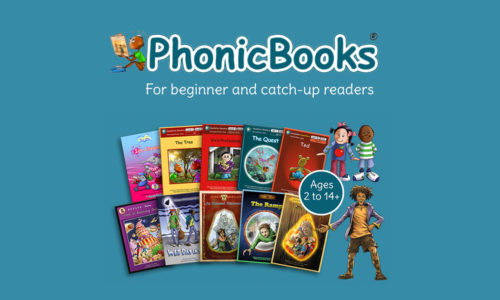I read this post and thought it was really worth reposting. It explains in simple and sympathetic language why decodable books have an important role to play in learning to read. New Zealand has been slow in adopting Systematic Synthetic Phonics, but things are changing for the better. This is a really worth a read! […]
Read Moredecodable books
Why ‘structured’ reading instruction is not enough
Why we need to teach ‘structured and cumulative’ reading instruction… In the bad old days before I learnt how to teach kids to read, I taught kids to read in a structured way. That is, what I thought was structure: Week 1: letters a, b, c, d Week 2: letters e, f, g, h Week […]
Read MoreFREE decodable book and resources for all to use!

In times like these, it’s important that we all pull together for the greater good. With that in mind, Phonic Books are delighted to be offering free resources for parents, carers and teachers alike, who want to support children with learning at home during this worrying time and beyond. The latest tool in our […]
Read MoreCumulative teaching – how to teach children who forget
Many of my students at the Bloomfield Learning Centre have difficulty remembering the complex alternative spellings of sounds in English. The problem is they don’t hold on to what they have learnt. The teacher may teach ‘ai’ and the next lesson ‘ee’ and after that ‘oa’. By this stage ‘ai’ is forgotten. It seems that […]
Read MoreHow to use decodable books

Decodable books are controlled texts that beginner readers can read independently once they have been taught the spellings in the text. Children learning to read with phonics benefit from reading decodable texts because these texts allow them to practice what they have been taught and experience success. They also help children develop an effective strategy […]
Read MoreDecodable books – why they are important
What are decodable books? For people who can read – all books are decodable. For children who are learning to read – decodable books are controlled texts that they can decode at each level as they acquire literacy (by sounding out the letters on the page and blending them into words). Decodable books are reading exercises […]
Read MoreTeacher uses decodable books for older readers to develop writing
A teacher has written in, sharing written work by struggling readers and writers using the Magic Belt, Totem and Talisman series. We very much appreciate this feedback. Below are the samples of work she has sent in. They include a plot summary, a book review, descriptive writing, figurative language, the rewriting of a story and […]
Read MoreNew English Curriculum and decodable books
The new English curriculum, which will be implemented in September 2014, specifies that children should be reading decodable books as they acquire literacy. This is the flyer we are sending to schools.
Read MoreThe importance of skills practice when learning to read
Learning to read, initially, has two components: knowledge: learning the graphemes and the sounds they represent skills: learning to blend sounds into words and segment sounds for spelling. Many teachers offer lots of fun ways to learn graphemes. They do this in step-by-step progression, starting from the simple graphemes and progressing to the more-complex ones. […]
Read MoreHow decodable texts help beginner and catch-up readers
The new National Curriculum now requires teachers to use decodable texts with children learning to read. Children are offered ‘controlled’ texts that include words they can decode independently, using the phonic knowledge they have been taught. These decodable texts enable pupils to focus on a specific spelling or group of spellings at each level. Pupils […]
Read More
